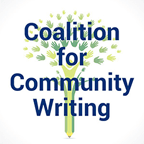Document Type
Article
Abstract
Effectively addressing wicked problems requires collaborative, embedded action. But, in many cases, scholarly commitments, social justice, privilege, and precarity collide in ways that make it difficult for community-engaged scholars to ethically navigate competing duties. This article presents our efforts to support reciprocal community engagement in addressing cancer- obesity comorbidity and risk coincidence in underserved communities. Partnering with community healthcare professionals, we conducted an adapted Systems Ethnography/Qualitative Modeling (SEQM) study. SEQM offers an alternative ethical framework for community-engaged research, one that supports reciprocity through enabling participant-centered community self-definition, goal setting, and solution identification.
Recommended Citation
Devasto, Danielle, et al. “Interventional Systems Ethnography and Intersecting Injustices: A New Approach for Fostering Reciprocal Community Engagement.” Community Literacy Journal, vol. 14, no. 1, 2019, pp. 44-64. doi:10.25148/clj.14.1.009055.

